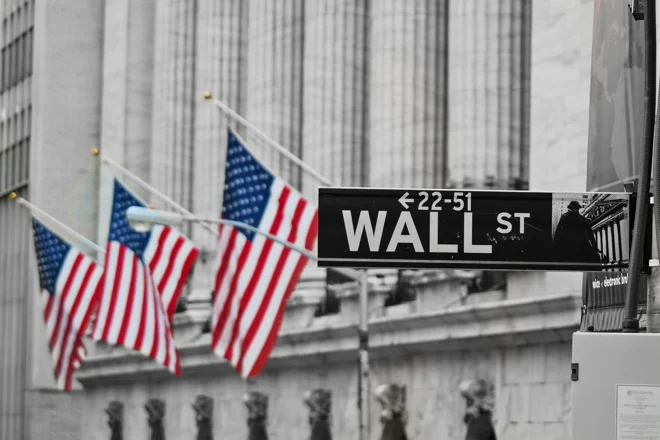Markets are grappling with two new(ish) facts. First, energy prices are surging. Second, central banks are diverging. Have investors seen this movie before? Imagine you do go to the movies after a lockdown. The auditorium has 250 seats but, because of unusually strong demand, the managers squeeze in an extra 50 seats. There’s a fire. If everyone rushes through the door, then you get inflation. If there’s an orderly exit, you don’t. Either way, the number of seats is the same. With demand slowing to a more normal pace and bottlenecks starting to ease, the inflation spike should settle down – not turn into a self-fulfilling spiral. This doesn’t imply depressed inflation. It means that subsiding shortages should imply that the inflation caused by these shortages – which we think makes up the majority of the spike – should subside too. The LA/Long Beach ports, both key entry points for Chinese goods in the US, are now working non-stop. This is why shipping costs from China, while still high, are beginning to decline. The Fed is about to taper its asset purchases. But rate hikes are at least a year away. The Bank of England faces more pressure to hike sooner, the ECB less.
New(ish) fact #1 | Energy prices surge: The geopolitical-driven increase in energy prices is slowing demand growth and raising inflation. To be clear, demand growth is still positive. And inflation continues to look more like a spike due to supply bottlenecks – not a self-fulfilling spiral. Used vehicle prices had an outsized impact on inflation recently as prices increased due to shortages of microchips for new cars, which pushed consumers to second-hand vehicles. This trend has started to fade, though the latest increase shows that setbacks are possible. Shipping costs also surged as supply chains got disrupted, putting a premium on available containers. As ports work through backlogs, costs have started to normalise. Rising energy costs – primarily oil but more recently also natural gas and coal – are akin to a ‘tax hike’ that, if protracted, turns out to be disinflationary by slowing growth.
New(ish) fact #2 | Central banks diverge: Relative to other monetary authorities, the Bank of England is more concerned by rising inflation, given greater reliance on energy imports, currency weakness (which could raise imported inflation) and faster wage growth – possibly driven by structural labour shortages created by Brexit. We now see the Bank of England to start hiking rates as soon as November or December. Of course, this should be put in context: the key policy rate is at a record low and, probably, will be rising more gradually than market pricing suggests. Next month, we expect the Fed to formally announce the long-awaited plan to taper its asset purchases, which should conclude by mid-2022. We still see rate hikes at least a year away. The ECB looks much more dovish, only gradually tapering its asset purchases (without going to zero), while keeping rates at rock-bottom.
Here’s why this matters:
Stronger dollar ahead: Fed tapering should raise US Treasury yields slightly faster, as markets price in rate hikes ahead of time and a somewhat more hawkish central bank. The Bank of England’s hint that the key policy rate may rise as soon as this year is leading to rising Gilt yields. Bund yields are lagging behind, as the ECB refrains from hiking. Currencies should reflect this divergence in central bank policy. We think the US dollar is likely to strengthen versus the euro in the near term, given a wider bond yield differential. Sterling too should gain versus the euro, once the UK economy – now under more pressure relative to its peer group – recovers from the shortages and growth picks up once again. Gold is likely to struggle in this environment, as we’re now projecting rising bond yields and dollar strength to a greater extent.
Less cyclicality in equities: The cycle, of course, isn’t ending. But the risk/return trade-off for cyclical assets has worsened. While the general backdrop remains supportive of risk assets, a more uncertain macro outlook and a loss of equity price momentum have recently led us to reduce our tactical equity overweight by closing the overweight in UK small caps – a highly cyclical market due to its sector composition. As global growth is decelerating from super-strong rates, this might turn from a tailwind into a headwind for this asset class. Meanwhile, the UK economy is facing severe challenges from shortages, strongly rising gas prices and monetary tightening likely to start soon. We continue to overweight US stocks – with a balanced sector mix and strong earnings momentum – plus a range of credit exposures.
Meanwhile, the ECB meeting is an interesting one this week…
Avoiding default: Before looking at central bank-land, Chinese media reported that Evergrande has repaid a missed interest payment on a dollar bond, just days ahead of a deadline that would have forced official default. While China’s real estate remains a downside risk to our outlook, these developments plus our base case of ‘soft landing’ support our tactical position in Asia high yield. Markets will likely focus on the ECB meeting (Thursday), where some hints on the future of the asset-buying programme may be revealed. Unlike the Fed, the ECB is unlikely to taper to zero for the foreseeable future. A possible announcement on continued buying, though at a reduced pace, should come in December. Also unlike the Fed and the Bank of England, the ECB shouldn’t hike rates, possibly for years. Data-wise, US GDP and PCE inflation (Thursday) are the key releases. The German Ifo business climate (today) plus euro area GDP and inflation (Friday) may be important too. In the UK, the highlight of the week is the Autumn Budget (Wednesday). In emerging markets, the central bank of Brazil (Wednesday) looks set to raise rates once again.
Daniele Antonucci | Chief Economist & Macro Strategist
This document has been prepared by Quintet Private Bank (Europe) S.A. The statements and views expressed in this document – based upon information from sources believed to be reliable – are those of Quintet Private Bank (Europe) S.A. and are subject to change. This document is of a general nature and does not constitute legal, accounting, tax or investment advice. All investors should keep in mind that past performance is no indication of future performance, and that the value of investments may go up or down. Changes in exchange rates may also cause the value of underlying investments to go up or down.
Copyright © Quintet Private Bank (Europe) S.A. 2021. All rights reserved.





